Given name
- John William, Duke of Jülich-Cleves-Berg (1562–1609)
- Johann Wilhelm, Duke of Saxe-Weimar (1530–1573)
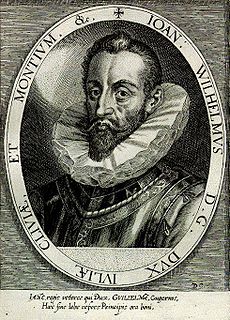
Johann Wilhelm of Jülich-Cleves-Berg was a Duke of Jülich-Cleves-Berg.

Johann Wilhelm was a duke of Saxe-Weimar.
John William may refer to:

Johann Wilhelm of Jülich-Cleves-Berg was a Duke of Jülich-Cleves-Berg.

Johann Wilhelm was a duke of Saxe-Weimar.

Juan Guillermo, Baron de Ripperdá, 1st Duke of Ripperdá, was a political adventurer and Spanish Prime Minister.
Dartmouth, also sometimes called Clifton, Dartmouth and Hardness, was a parliamentary borough in Devon which elected two Members of Parliament (MPs) to the House of Commons in 1298 and to the Commons of England, Great Britain, and the United Kingdom from 1351 until 1832, and then one member from 1832 until 1868, when the borough was disfranchised.

Southwark was a constituency centred on the Southwark district of South London. It returned two Members of Parliament to the House of Commons of the English Parliament from 1295 to 1707, to the Parliament of Great Britain from 1707 to 1800, and to the UK Parliament until its first abolition for the 1885 general election. A seat of the same name, covering a smaller area than the last form of the earlier seat in the west of the original and beyond its boundaries to the southwest, was created in 1950 and abolished in 1974.
John Williams is an American composer, conductor and pianist.
| This disambiguation page lists articles about people with the same name. If an internal link led you here, you may wish to change the link to point directly to the intended article. |

Thomas Newcomen was an English inventor who created the atmospheric engine, the first practical fuel-burning engine in 1712. He was an ironmonger by trade and a Baptist lay preacher by calling. He was born in Dartmouth, Devon, England, to a merchant family and baptised at St. Saviour's Church on 28 February 1664. In those days flooding in coal and tin mines was a major problem, and Newcomen was soon engaged in trying to improve ways to pump out the water from such mines. His ironmonger's business specialised in designing, manufacturing and selling tools for the mining industry.

Sir Oliver Heald is a British barrister and Conservative politician, who currently serves as Member of Parliament (MP) for North East Hertfordshire.
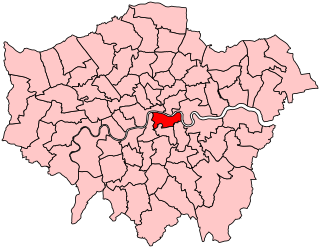
North Southwark and Bermondsey was a parliamentary constituency which returned one Member of Parliament (MP) to the House of Commons of the Parliament of the United Kingdom. The constituency was created for the 1997 general election.
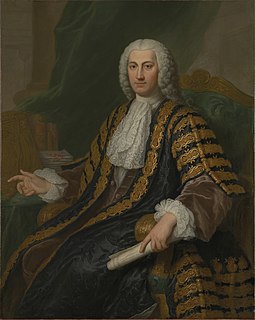
Henry Bilson-Legge was an English statesman. He notably served three times as Chancellor of the Exchequer in the 1750s and 1760s.

Bermondsey and Old Southwark is a constituency in the House of Commons of the UK Parliament represented by Neil Coyle of the Labour Party since 2015.

Sir Edward Turnor or Turnour was a Speaker of the House of Commons of England.
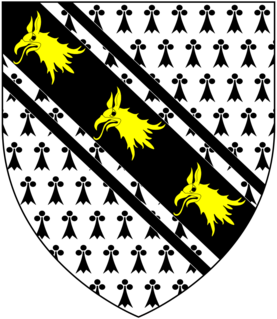
Sir Walter Yonge, 2nd Baronet of Great House, Colyton, and of Mohuns Ottery, both in Devon, was a Member of Parliament for Honiton (1659), for Lyme Regis (1660) and for Dartmouth (1667–70).
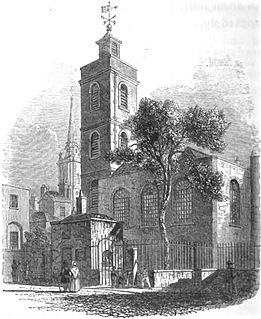
St James Duke's Place was an Anglican parish church in the Aldgate ward of the City of London It was established in the early 17th century, rebuilt in 1727 and closed and demolished in 1874.
Spencer Cowper was an English lawyer and politician who sat in the English and British House of Commons between 1705 and 1727.

Henry Addington of the Tories was appointed by King George III to lead the government of the United Kingdom of Great Britain and Ireland from 1801 to 1804, serving as an interlude between the ministries of William Pitt the Younger. The Addington ministry is most notable for negotiating the Treaty of Amiens, which marked a brief cessation in the Napoleonic Wars.
The National Union of Conservative and Constitutional Associations (NUCCA) was an organization set up by Benjamin Disraeli. It is considered to be a precursor to the modern Conservative Party conference. Unless otherwise stated, details of Chairmen and Presidents of the NUCCA are taken from British Historical Facts 1830-1900 by Chris Cook and Brendan Keith or from British Political Facts 1900-1994 by David Butler and Gareth Butler, as appropriate.
Sir Charles Cox (1660–1729) was an English brewer and Whig Member of Parliament for Southwark from 1695 to 1712. For many years afterwards the MP for Southwark would generally be a brewer.
Sir George Rivers (1553–1630) was an English politician.
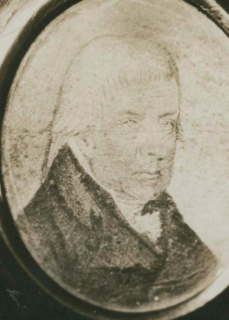
The Raid on Dartmouth occurred during Father Le Loutre's War on May 13, 1751 when a Mi'kmaq and Acadia militia from Chignecto, under the command of Acadian Joseph Broussard, raided Dartmouth, Nova Scotia, destroying the town and killing twenty British villagers and wounding British regulars. The town was protected by a blockhouse on Blockhouse Hill with William Clapham's Rangers and British regulars from the 45th Regiment of Foot. This raid was one of seven the Natives and Acadians would conduct against the town during the war.
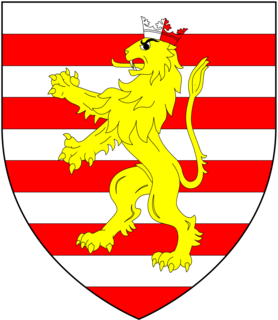
Sir William Brandon, of Wangford in Suffolk, was an English landowner, administrator, soldier, courtier and politician. His grandson was Charles Brandon, 1st Duke of Suffolk, a courtier and close friend of King Henry VIII.
Sir Thomas Clarges was an English politician who sat in the House of Commons at various times between 1656 and 1695. He played an important part in bringing about the Restoration of the Monarchy in 1660.
Sir William Burcester was an English politician.
John Arnold, widely known as John Arnold of Monmouthshire, was a Welsh Protestant politician and Whig MP. He was one of the most prominent people in Monmouthshire in the late 17th century. A stark anti-Papist, he was a notable figure during the Popish plot and the suppression of Catholicism in the country. Arnold represented the constituencies around Monmouth and Southwark in Parliament in the 1680s and 1690s. His strong anti-Papist beliefs and insurgences against Catholic priests made him an unpopular and controversial figure amongst his peers and in his native Monmouthshire. In his later his behaviour became increasingly eccentric. Amongst his associates were Titus Oates and Anthony Ashley Cooper, 1st Earl of Shaftesbury.